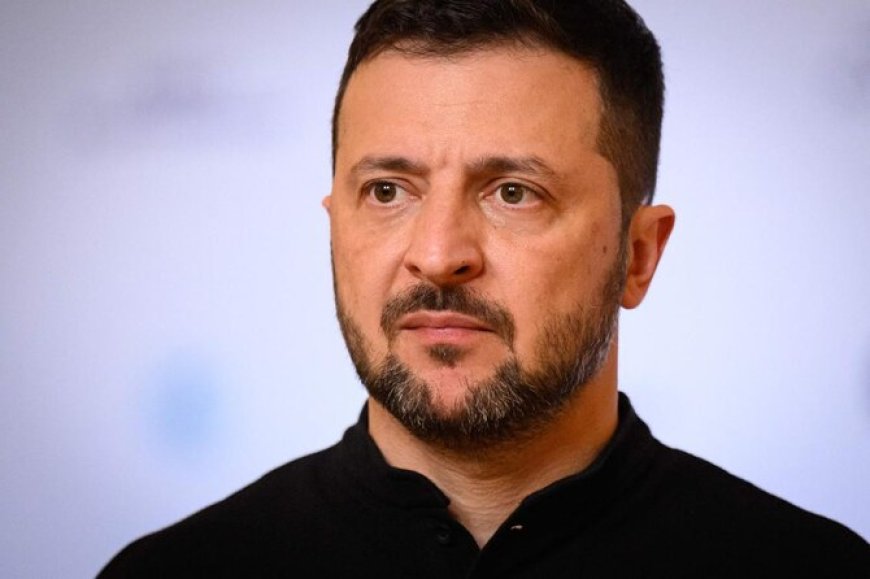Zelensky to Present "Victory Plan" to Biden Amid Ongoing Discussions on Long-Range Missiles

Ukrainian President Volodymyr Zelensky announced on Friday that he plans to meet with U.S. President Joe Biden later this month to present his "victory plan" for ending the ongoing war with Russia. The two leaders are expected to discuss a strategic approach to conclude more than two and a half years of conflict, which began with Russia's invasion of Ukraine in early 2022.
Speaking at an international conference in Kyiv, Zelensky provided limited details about the plan but described it as "a system of interconnected solutions that will give Ukraine enough power — enough to put this war on a course to peace." He emphasized that the proposal aims to provide Ukraine with the necessary means to achieve a decisive outcome, although specific steps remain undisclosed.
Ukraine's Push for Long-Range Missiles
Zelensky's announcement comes as the Biden administration is considering whether to approve Ukraine's request to use Western-supplied long-range missiles to strike targets inside Russia. This request has been a critical point of contention between Kyiv and its Western allies. Zelensky believes that the ability to target Russian positions beyond Ukraine's borders could significantly alter the course of the war.
The timing of Zelensky’s meeting with Biden is notable, as it follows a month-long Ukrainian incursion into Russia's Kursk region, which the Ukrainian president had previously stated was aimed at pressuring Moscow into "fair" negotiations. Kyiv continues to argue that a more assertive use of Western weaponry could force Russia into a position where peace talks become viable.
Biden and Starmer Discuss Missile Support
In parallel, Biden is also engaged in discussions with UK Prime Minister Keir Starmer about the prospect of allowing Ukraine to use Western-provided long-range missiles against Russian targets. The decision is part of a broader conversation on how to support Ukraine’s military objectives while managing the risks of escalating the conflict beyond Ukraine's borders.
The potential deployment of such weapons has raised concerns among Western governments about the risks of provoking a wider confrontation with Russia. However, Ukraine contends that expanding the scope of its military operations, with access to advanced weaponry, is crucial to weakening Russia's strategic positions and hastening the end of the war.
Kyiv’s Strategic Momentum
Zelensky’s upcoming visit to Washington represents a critical moment for Ukraine as it continues to seek greater military and economic support from its Western allies. Kyiv has repeatedly emphasized that more robust backing from the West, including long-range missiles and other advanced military hardware, is essential to achieving a favorable resolution to the conflict.
Ukraine's armed forces have made significant strides in their ongoing counteroffensive against Russian-occupied territories, but the conflict remains far from a resolution. Zelensky's surprise operations in the Kursk region were seen as part of a broader strategy to compel Russia into negotiations, but Moscow has shown little interest in engaging in talks on Ukraine’s terms.
The Path Ahead
Zelensky’s "victory plan" could offer a blueprint for how Ukraine envisions the endgame of the war, but much depends on the continued support of its Western allies, particularly the United States. The upcoming meeting with Biden is likely to be pivotal, both in terms of shaping U.S. military aid to Ukraine and in determining the scope of Ukraine's efforts to retake occupied territories.
The outcome of discussions on long-range missiles will also be closely watched, as it could significantly influence the trajectory of the conflict in the months ahead. If approved, these weapons could provide Ukraine with a new set of tools to challenge Russia’s military dominance, but they also carry the risk of escalating tensions with Moscow.
As the war enters its 31st month, Zelensky’s diplomatic efforts to secure more Western backing underscore the high stakes for Ukraine. The next steps in U.S. and UK policy could prove decisive in determining the future of the conflict and Ukraine’s ability to chart a path toward peace













































